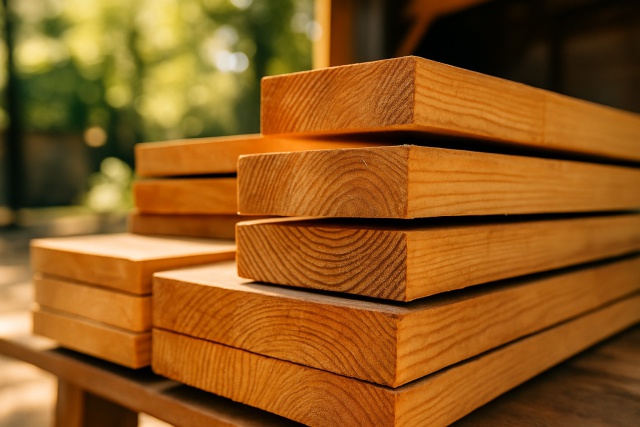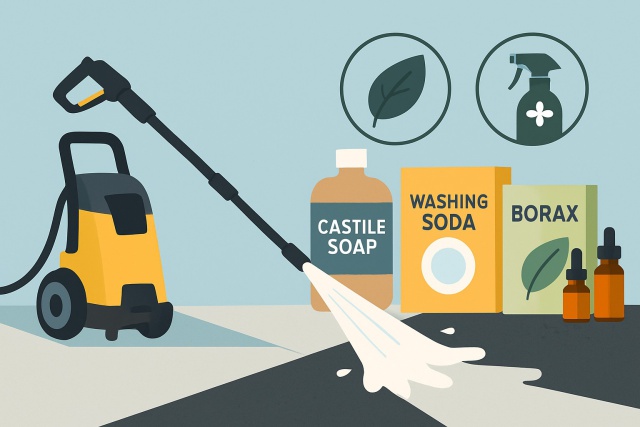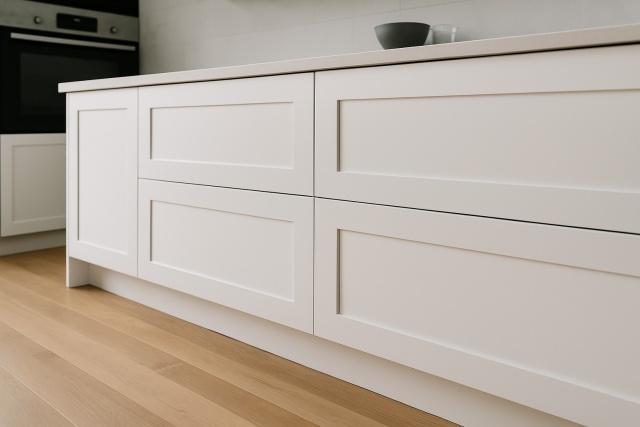How To Use Rubbing Alcohol To Clean Windows Without Streaks
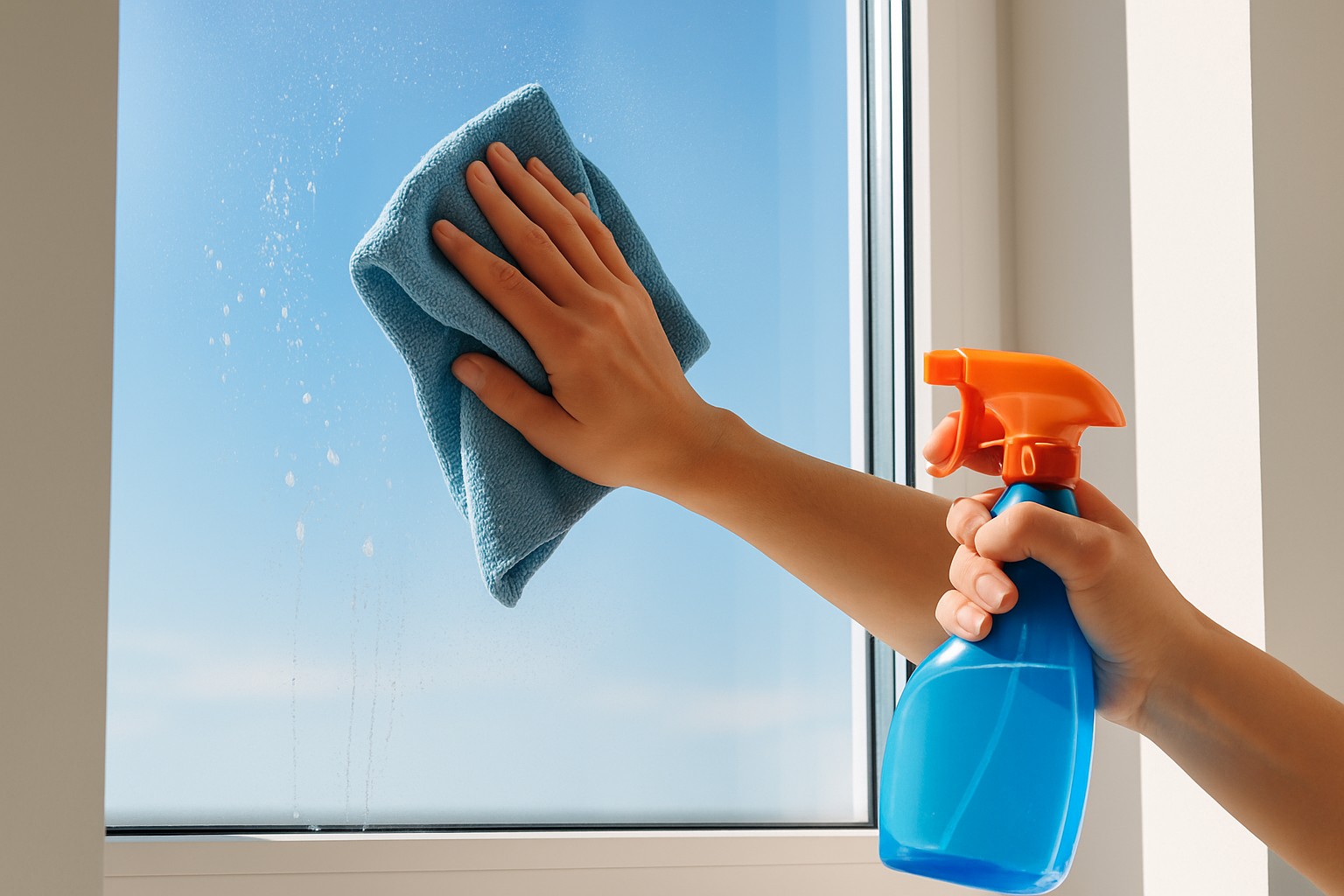
Cleaning windows to a streak-free shine often turns out to be trickier than it looks. Traditional cleaners leave behind streaks and spots just when you think you’ve nailed it, making all your hard work feel like a lost cause. Using rubbing alcohol to clean windows is a wallet-friendly solution that tackles glass surfaces like a pro without annoying streaks. It evaporates quickly and cuts through grease like magic. It zaps dirt and grime while drying clear and spotless.
Why Opt for Rubbing Alcohol to Clean Windows?
Rubbing alcohol makes for a surprisingly good window cleaner because it dries up quickly without leaving any annoying residue behind. It’s pretty effective at cutting through stubborn grease and fingerprints, leaving your glass looking crystal clear and totally spotless.
- Dries quickly so you won’t be left staring at streaks wondering what went wrong.
- Budget-friendly and easy to find, making it a go-to cleaning hack that won’t break the bank.
- Effectively cuts through dirt and grease on glass surfaces like a champ.
- Acts as a gentle disinfectant to keep your windows fresh and inviting.
- Safe on glass with no worries about scratches or damage.
- Leaves a clear bright finish that boosts natural light and gives your view extra pop.
Materials and Tools You will Actually Need (No Surprises Here)
It’s a good idea to gather all your materials upfront—it makes the whole cleaning process feel less like a scramble. Rubbing alcohol takes center stage here but teaming it up with a handful of other tools and optional extras like a trusty squeegee or a crumpled-up newspaper can really up your chances of nailing a streak-free, hassle-free finish.
- Rubbing alcohol ideally 70% isopropyl that does a surprisingly good job at cutting through grime
- Distilled water to dilute the mix and keep things gentle on surfaces without sacrificing cleaning power
- A spray bottle to help you apply the solution evenly
- Several microfiber cloths that are gentle yet tough enough to tackle smudges without scratching
- A squeegee if you have large windows and want to avoid pesky streaks
- Gloves to keep your skin happy and protected when you are elbow-deep in cleaning
- Newspaper, the old-school trick that still works wonders for a satisfying streak-free polish
A No-Nonsense Guide to Cleaning Windows with Rubbing Alcohol
Follow these simple no-nonsense steps to clean your windows with rubbing alcohol like a pro. Each part walks you through prepping the surface, applying the cleaner correctly, wiping it down, and getting that coveted streak-free shine.
Mix two parts rubbing alcohol with one part distilled water in a spray bottle to make your cleaning solution.
Give the whole window a generous spray to ensure every bit of dirt and grime gets a good misting.
Grab a clean microfiber cloth and gently work in circular motions to lift dirt and pesky fingerprints.
If you have a squeegee, run it from top to bottom to scoop up excess liquid and wipe the blade after each pass to keep things neat.
For a crystal-clear polished finish, use a dry microfiber cloth or crumpled newspaper to dry the edges and tackle stubborn spots.
Take a step back and check your work from different angles. If you spot lingering streaks or smudges, repeat these steps until you’re happy with the shine.
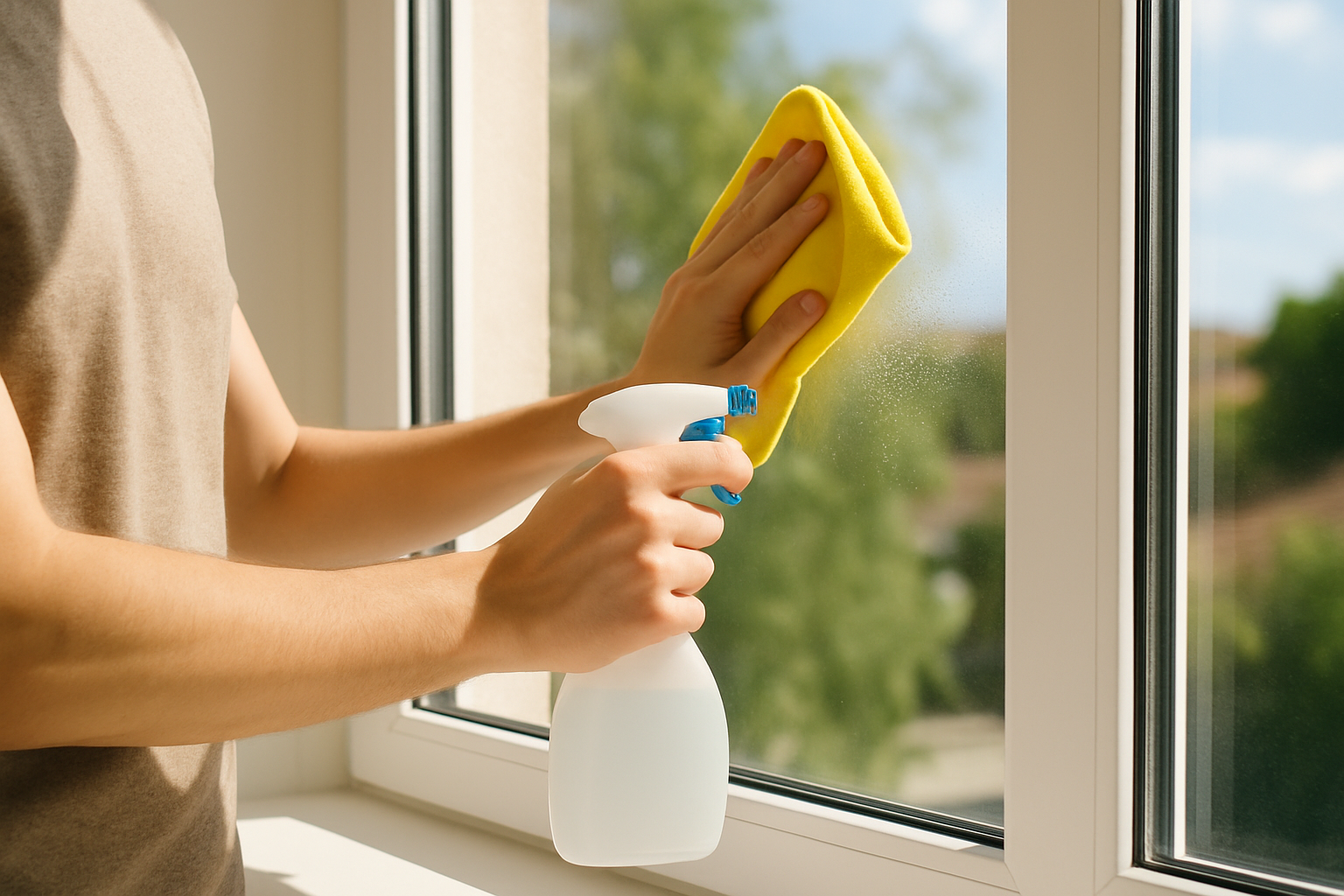
Demonstration of cleaning a window using rubbing alcohol spray and microfiber cloth for streak-free results
Tips to Prevent Streaks and Dodge Those All-Too-Common Slip-Ups
Getting perfectly clean windows often comes down to avoiding the usual pitfalls and keeping up some solid habits. Picking the right tools and timing your cleaning just right can truly work wonders.
- Always use microfiber cloths because they pick up dirt well and won’t leave behind lint like cotton or paper towels.
- Avoid cleaning windows when the sun shines directly on them or on very hot days because fast drying causes streaks and no one wants that.
- Be careful not to soak the glass. Too much liquid causes dripping and streaks as it dries which leads to problems.
- Wipe with smooth consistent strokes by choosing either all vertical or all horizontal strokes to get a clean finish that looks great.
- Dirty rags don’t clean effectively and just spread dirt around, so change or wash your cloths regularly.
- Avoid using paper towels or rough cloths because they can scratch the glass or leave lint behind.
Ensuring Safe Use and Giving a Thought to Our Environment
Rubbing alcohol is generally safe and does a great job but it’s important to handle it with a bit of care to keep both you and the environment out of trouble. Making sure there’s good ventilation and handling it properly goes a long way in cutting down the chance of breathing in those fumes. Plus, tossing out your cleaning materials responsibly not only feels good but also gives the planet a tiny break.
- If your skin tends to be sensitive or dry, wearing gloves can help prevent redness or irritation caused by alcohol.
- Always try to work in a well-ventilated area so you do not breathe in the fumes more than necessary. Fresh air is your friend.
- Keep rubbing alcohol away from flames and heat sources because it is highly flammable and can be dangerous.
- Avoid pouring leftover solution down the drain. It is better for your plumbing and the environment to dispose of it safely.
- When dealing with used cloths or rags, handle them responsibly by washing them well or following local waste disposal guidelines to stay tidy and eco-friendly.
Other Ways to Clean Windows Using Rubbing Alcohol (Because Sometimes Soap Just Will not Cut It)
Pure rubbing alcohol does a pretty decent job by itself but when you team it up with a few common household buddies its cleaning mojo can really kick into high gear—especially when you're using rubbing alcohol to clean windows or dealing with stubborn grime. Take rubbing alcohol mixed with white vinegar for example. That combo delivers a natural acidity that's very effective at breaking down pesky mineral deposits. Add a couple drops of mild dish soap and you get a slicker agent that's great at slicing through grease like a hot knife through butter.
| Ingredients | Best Use Case | Pros | Cons |
|---|---|---|---|
| 2 parts rubbing alcohol + 1 part distilled water | Everyday window cleaning | Dries lickety-split, leaves no annoying streaks, and super easy to mix up at home | Might struggle a bit with really stubborn stains |
| 1 part rubbing alcohol + 1 part white vinegar + 1 part water | Removing hard water spots and mineral deposits | The acidity really gets to work breaking down deposits, making light work of tough grime | That vinegar scent? It tends to hang around for a little longer than you would hope |
| 1 part rubbing alcohol + 2 parts water + few drops of dish soap | Greasy fingerprints and grime | Cuts through grease like a champ, but still gentle enough to keep glass happy | Using too much soap can leave behind a pesky residue |
| Pure rubbing alcohol | Quick spot cleaning and disinfecting | Packs a punch as a disinfectant and dries in a flash | Could be a bit harsh if your skin’s on the sensitive side |
| 1 part rubbing alcohol + 1 part water + few drops lemon juice | Added natural fresh scent and shine | Works as a natural deodorizer while giving a nice subtle shine | Lemon juice might leave a tiny bit of residue if you don’t wipe it off thoroughly |



